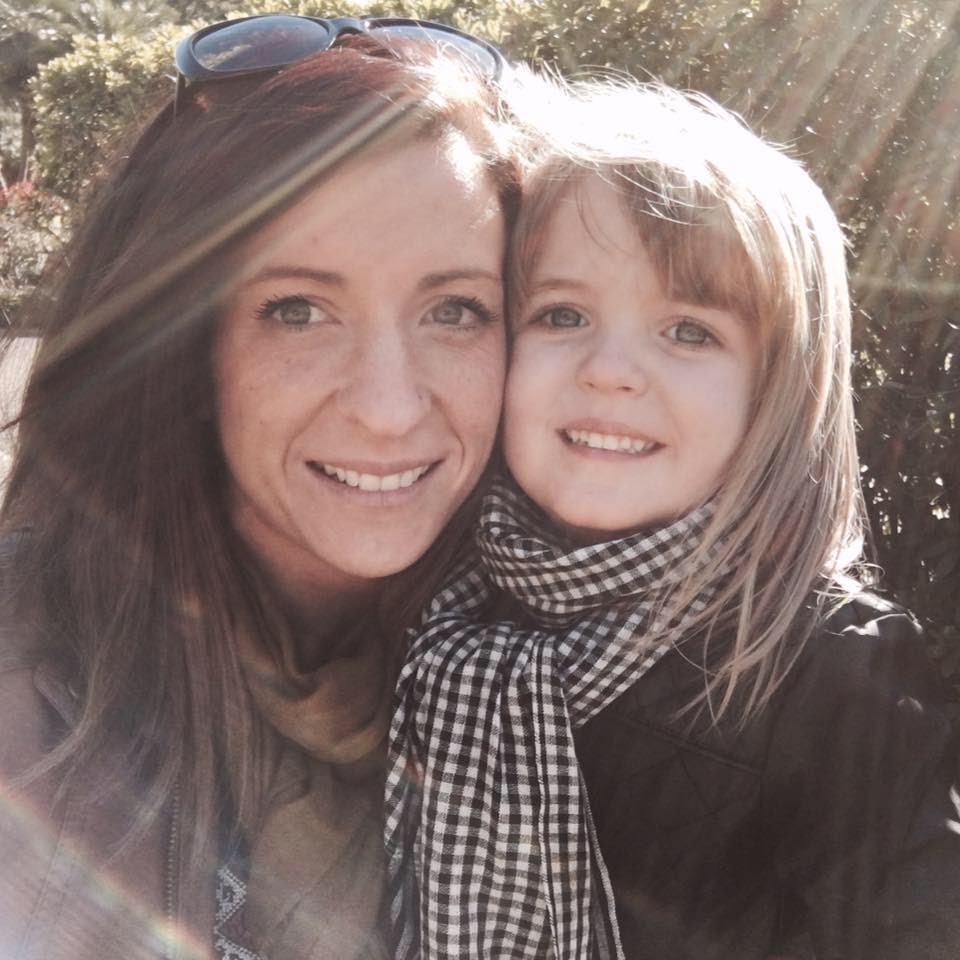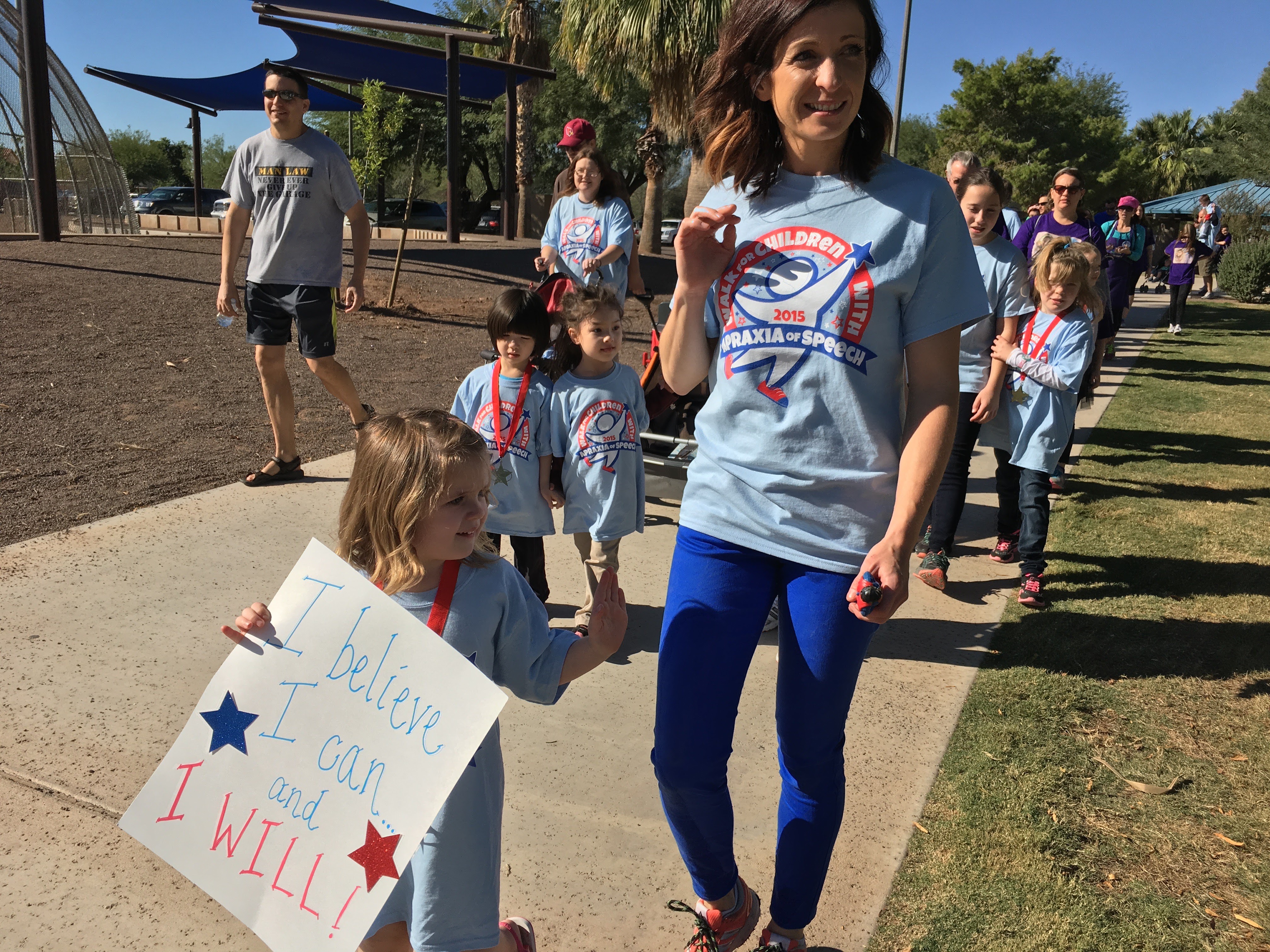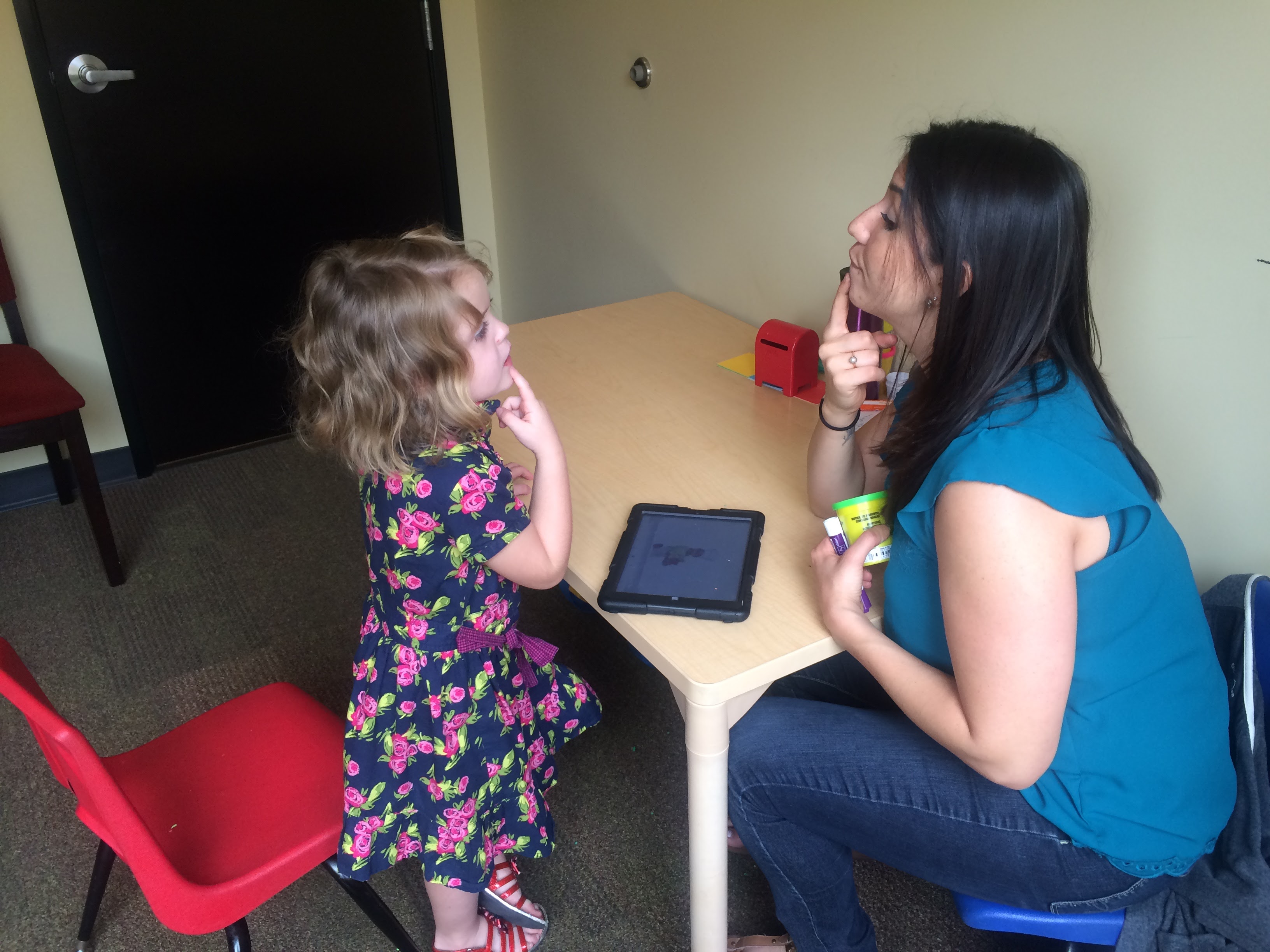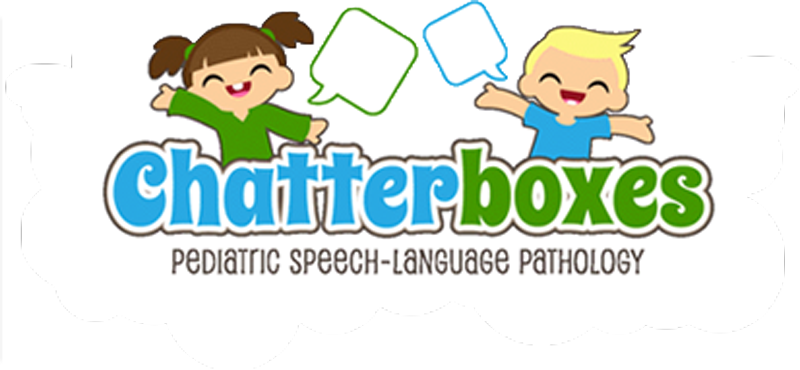Welcome to our fourth installment of the blog interview series “Now We’re Talking!”. In this interview, we talk to Sheila from the blog “What Would Gia Say?” and learn about her and her daughter Gia’s journey with Childhood Apraxia of Speech (CAS). A special thank you to Sheila, and enjoy!
Q: Tell us about you and your family?
A: My name is Sheila and I’m a stay-at-home mom to a seven-year-old boy named Nicholas, and a six-year-old girl named Gia. My husband, Jeff, and I have been married for 12 years and are raising our family together in Arizona.
Our daughter, Gia, was diagnosed at three years old with Childhood Apraxia of Speech and mixed expressive and receptive language disorder. During that same time, we were referred to an occupational therapy (OT) team that helped Gia with her motor planning and some mild sensory dysfunction. She’s since been discharged from OT, but is still working hard toward her speech and language goals. With Gia beginning her first grade year in school, we are eye to eye with the next phase of CAS: the possibility of reading and writing issues. This is the side of CAS that you really don’t think about when your child is first diagnosed and all you want to hear is the words, ‘I love you’. But no matter what comes of Gia’s apraxia, our family is ready for the next fight.

Q: How has writing and sharing your story helped you and your family?
A: I started my blog, What Would Gia Say?, for a number of reasons, one being that I love to write and I always have. I’m just able to express myself better on paper than in person, and for that reason, writing is extremely therapeutic for me. I was also looking to connect with other apraxia families; I wanted to help them and I wanted them to help me. When your world is turned upside down like that, you are desperate to find others who are living your same story. You feel alone and just want to relate to someone – anyone! I also had this intense need to educate the public about CAS. It was so rare that I would come across someone who had heard of apraxia, and being who I am, I was determined to change that. Now, after just a few years of writing my first post , I can honestly say that starting my blog was one of the best decisions I could have made for myself. I could have never imagined the response I would get by sharing my story; it has accomplished everything I’d hoped for and so much more.
Q: What kind of support system have you built for Gia?
A: My husband and I both have the most loving and supportive families. They are Gia’s biggest cheerleaders, and my greatest source of strength. There can be a lot of ups and downs in this journey, and you really need that unconditional support that only family can give you.
Gia’s therapists have been such a huge support to us too, and not just for the obvious reasons, but for the ways they go above and beyond their job description. They’ve seen Gia and I at some of our most vulnerable moments and we truly feel safe with them.
Outside of family and friends, your support system is really what you choose to make it. I’ve personally made the decision to put myself out there and share Gia’s struggles, and because of that, we receive endless amounts of support, quite literally from across the world. I owe a lot of that to my blog, as well as my attempts to raise awareness of CAS through social media. I also belong to a local Facebook group called, Arizona Apraxia Support Group. I feel so grateful to be raising Gia during a time that support is so easily accessible.

Q: Tell us about your experiences with your Speech-Language Pathologists and speech therapy.
A: Speech therapy has just sort of fallen into place for us, and I know not everyone is that lucky. I’ve spoken with so many people who don’t have access to proper therapy for their child, and it’s a real shame. We live just five minutes from Foundations Developmental House (FDH), which was started by Lynn Carahaly, who created the Speech-EZ Apraxia Program. Gia is so happy and comfortable there; it’s like her second home. I honestly could never say enough about FDH and our SLP’s! They’ve given our family the greatest gift. Seeing someone other than yourself show such dedication to helping your child is a feeling beyond words. They are our angels.
Speech-Language Pathology is one of the most under-appreciated professions there is. There’s so much more to what they do than people realize, and it takes an unbelievable amount of talent and skill. On top of that, they face the high expectations of worried parents everyday and with very little recognition. I could go on and on about this subject, because I’m very passionate about it. I just hope to one day see SLP’s celebrated for what they do and for the many lives that they change.

Q: What are some resources that you think all parents of children with CAS should know of?
A: Well the obvious answer would have to be CASANA. They are the ultimate resource: whether it’s the latest apraxia research, opportunities for financial support, or finding an SLP near you who’s experienced in treating CAS; they are your go-to, end-all source of information.
I also love the website, understood.org, especially for the later years of CAS. This is the only site I know where you can create a profile of your child, and receive personalized resources and tips that are specific to their struggles. It’s so well done! I would recommend it not only to CAS parents, but to anyone with a child that needs extra help in any area of development.
And of course, we can’t forget about other parents; sometimes there’s no better resource than that.
Q: Are there any tips or tricks you have learned to help Gia over the years?
A: Repetition, repetition, repetition! Apraxia is such a mystery, but I’ve just learned over time that repetition is the key for Gia. Whether it’s a simple speech sound or a misuse of her pronouns, Gia needs to practice it hundreds of times before it comes naturally to her. When you’re up against something that fights you that hard, you can’t depend solely on your SLP’s. So I make sure I’m always aware of Gia’s speech and language goals and do my part at home to get her there. This usually means correcting her errors in a positive way and having her repeat back the best she can. But I’m careful not to correct her every single time, because no matter how positive I make it, I don’t want her to always feel like she’s failing. So sometimes, I won’t actually correct her, but I’ll simply model the correct way to say something by repeating her sentence back to her, and other times I won’t say anything at all. You just have to find the right balance for your child.
Q: Is there a memorable moment you would like to share about Gia?
A: The moment that Gia said her name correctly for the first time was by far my most memorable. The long /g/ was just always a difficult sound for her, so she substituted it with the short /g/ and became “G-ia” for years. I admit it was cute, but really heartbreaking at the same time. This became speech goal number one for me. I kept making three month goals for getting her name down, and three months kept coming and going. But one day it just clicked, which sure seems to be the apraxia way. It was October 12, 2016 (yes I remember the exact date) when she said “Gia” for the first time, unprompted, all on her own. We just stared at each other and smiled. I could tell she knew what she had just accomplished. Then I cried and we had a super cheesy, movie-like moment and the rest is history; she’s been “Gia” ever since! It sounds so small but this was everything to me.
Q: What advice would you give another parent in your position?
A: Much like I spoke about earlier – it’s so important to follow up on your child’s therapy at home. They are with you the majority of their time, so you’re an integral part of their success. Ask their SLP questions, familiarize yourself with their speech goals and support your kiddo accordingly. There are countless ways to help them while keeping things fun and positive. You can reinforce language skills by telling stories to each other, reading them repetitive books, or playing board games. There are a lot of great speech and/or literacy apps out there; some more fun, and some that would feel more like a therapy session. As much as we’d like to, we can’t count on our beloved SLP’s to do all the work.
Q: If you could travel back in time, what would you tell yourself when you found out that Gia has Childhood Apraxia of Speech?
A: You can’t fix this, Sheila! You just can’t. No matter how hard you try or how much you read, you can’t fix it. Let the disorder take its course and don’t blame yourself along the way. You don’t have control over this one, and ya know what, Sheila? That’s OKAY.

